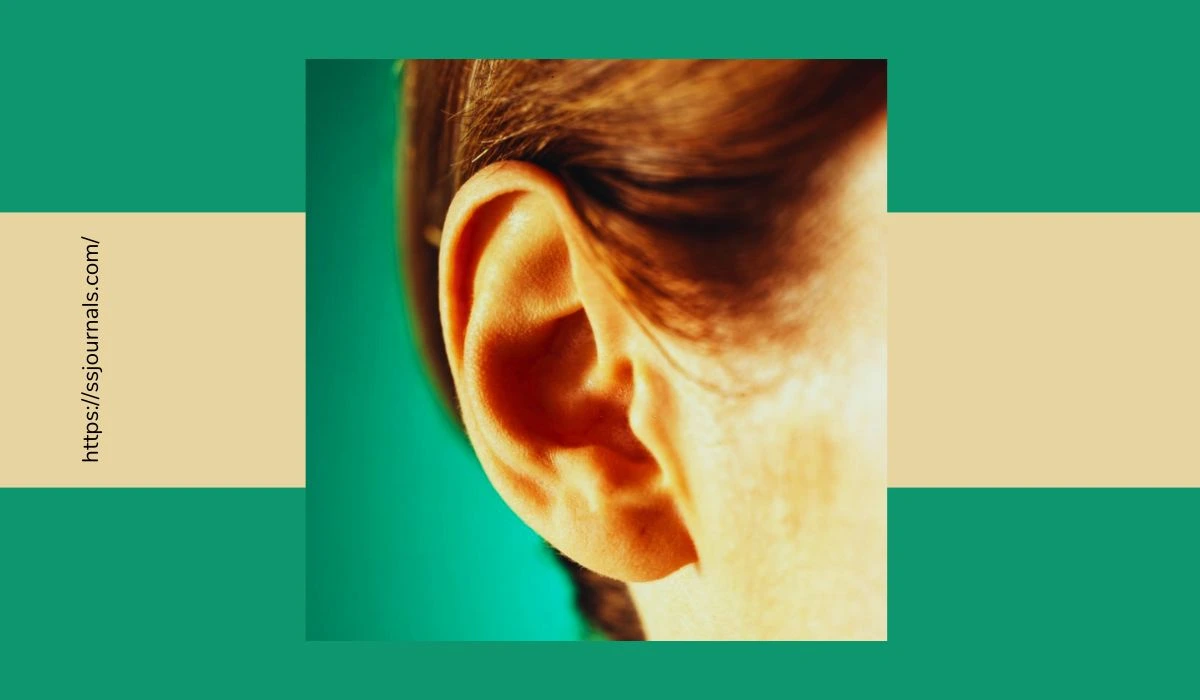The eardrum, also known as the tympanic membrane, has the potential to rupture for many reasons. This article will explain the causes, signs, and treatments of this condition. It is crucial to understand the consequences of a torn eardrum and seek medical attention immediately.
The eardrum is very important for hearing. It transmits sound vibrations from the outer ear to the middle ear. Nevertheless, certain situations can cause its rupture.
Don’t put off seeking medical advice if you think you have a ruptured eardrum. Early diagnosis and appropriate treatment can stop more complications and improve recovery. Your hearing health should be taken seriously; taking action now can save you from problems later.
What Is An Eardrum Rupture?
An eardrum rupture, also known as a tympanic membrane perforation, is a condition in which the thin tissue between the outer and middle ear tears or breaks. This can be caused by loud noises, changes in air pressure, infections, and trauma to the ear. The rupture can vary in size and location, leading to different symptoms and treatment options.

Symptoms may include sudden ear pain, hearing loss, muffled hearing, tinnitus, dizziness, and fluid leaking from the ear. The severity of these symptoms depends on the size and location of the rupture.
Smaller ruptures can heal without medical intervention. Larger or persistent ruptures, however, may require treatment. This can range from antibiotic eardrops to surgical procedures like tympanoplasty. Consulting an ENT specialist is essential.
Causes Of Eardrum Rupture
Eardrum rupture, also known as tympanic membrane perforation, can be caused by a range of factors. These vary from trauma to infection, leading to a tear or hole in the eardrum.
- Foreign Objects: Inserting items like cotton swabs or hairpins can cause a perforated eardrum. The delicate nature of the eardrum means it’s vulnerable to damage.
- Pressure Changes: Rapid and extreme pressure changes, such as those in air travel or scuba diving, can cause eardrum rupture. This occurs when the pressure inside and outside the ear is not balanced.
- Loud Noises: Prolonged exposure to loud noises can lead to permanent damage to the eardrum. Sudden high-intensity sounds, such as explosions or gunshots, can also cause immediate rupture.
- Infections: Severe infections of the middle ear, such as acute otitis media or chronic otitis media, can weaken and eventually rupture the eardrum. These infections can come from bacteria or viruses attacking those with weak immunity.
- Trauma: Trauma directly impacting the ear region, such as a blow to the head or ear, can cause huge damage to the eardrum. This could result from accidents, physical altercations, or sports-related injuries.
Symptoms Of Eardrum Rupture
Signs of eardrum rupture can differ, however, they usually suggest a problem in the ear. Pain, hearing loss, and ear drainage are common symptoms.
🔶 Pain: The most obvious symptom is sharp or constant pain in the ear. Plus, the pain may get worse when pressure changes or when lying down.
🔶 Hearing Loss: Another sign of eardrum rupture is decreased hearing. Sounds may become faint or muffled in that ear.
🔶 Ear Drainage: A fluid or pus-like substance coming from the ear is an indication of eardrum rupture. It could have an unpleasant odor and come with blood.
In addition, people with eardrum rupture may feel dizzy or hear ringing in their ears. It’s important to note that these symptoms could also be caused by other ear issues, so medical diagnosis is essential.
Diagnosing Eardrum Rupture
The eardrum’s appearance can differ in its severity and position. It could have a tear, a hole, blood, pus, or even a bulge. Tests may be done to check hearing loss or middle ear function. Differentiating between a ruptured eardrum and other ear conditions is important. This lets us give the patient the right treatment.
Studies suggest that minor eardrum ruptures may heal without treatment in a few weeks. This could prevent you from having procedures that involve putting things in your ear.
Treatments For Eardrum Rupture
Medication: Antibiotic eardrops or oral antibiotics are commonly prescribed to fight bacteria and promote healing. In some cases, paper patching is used to cover the tear and help the eardrum regenerate. Severe cases may require surgery.
To prevent complications and speed up recovery:
- Keep the ear dry – no swimming or exposing it to water.
- Protect from loud noises – use earmuffs or earplugs.
- Follow proper hygiene practices – clean your ears with gentle techniques. Avoid inserting things into them.
Preventing Eardrum Rupture
It’s super important to take measures to avoid eardrum rupture. Firstly, don’t put anything inside your ears. Secondly, use earplugs or earmuffs to protect your ears from loud noises. Also, don’t use cotton swabs to clean your ears as this can push earwax deeper and cause a rupture. If you suddenly experience pain or hearing loss, seek medical help right away.
Be careful with activities that may increase your risk of eardrum rupture. These include diving into the water with force and contact sports without proper protective gear. Take note of any signs of infection such as pain, discharge, or fever, and address them immediately. Simple precautions and prompt action can help prevent a ruptured eardrum.
Also Check: Effective Ways To Prevent Hearing Loss: Know The Causes And Symptoms

